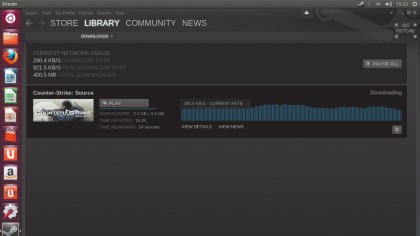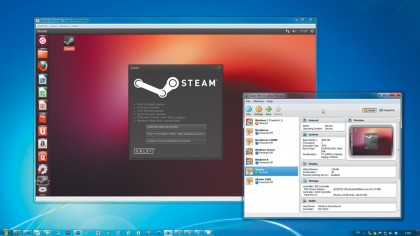Can gaming be the turning point for Linux on the desktop?
Sign up for breaking news, reviews, opinion, top tech deals, and more.
You are now subscribed
Your newsletter sign-up was successful
The most interesting aspect of Wine is that it caters for more than just games, as it'll attempt to enable a host of standard Windows software to run under Linux. Wine is an awesome way of running Windows software via Linux - that is, if you like bugs.
Wine breaks compatibility down into four levels: Platinum for flawless compatibility, Gold for great use with special settings, Silver and Bronze are for games with minor issues and Garbage covers, well, garbage. Over 3,400 games are listed as Platinum, just over 5,500 as Gold or Silver, while over 6,000 games are rated Bronze or worse.
Interestingly, Wine concentrates on the core Windows API and doesn't concern itself with how well individual games or software actually work. This means there's a host of add-on systems that attempt to tune Wine for individual games, and a list can be found at http://wiki.winehq.org/ThirdPartyApplications.
Recently, id co-founder John Carmack tweeted that creating native mainstream Linux games makes no business sense for any company. Largely this comes from id's dabble with Quake Arena and Quake Live, with Carmack adding: "The conventional wisdom is that native Linux games are not a good market." He went on to say that a Wine-style layer "could allow developers to get Linux versions with little more effort than supporting, say, Windows XP."
They're interesting words, and perhaps that's what Valve is planning with the Steam Box - whatever it is, it'll be more than a little interesting.
Fighting talk

As a day-to-day OS, Linux is used by millions of people all around the globe. The X11 interface has been developed on for years and offers some lovely touches, while Ubuntu comes with multi-desktop built-in and it's easy to add more extensions than we have space for.
As it was created by programmers, for programmers, it's a fantastic development platform for coders - so if you've got a passion for code or are looking to give it a go then there's no better platform.
Sign up for breaking news, reviews, opinion, top tech deals, and more.

As we've already mentioned, it's also used to drive the majority of the world's web servers, so using it to learn and develop web APIs is never going to be a bad thing. It's not even like you have to abandon Windows - you can still cling to your favourite Microsoft OS and still dabble with a little Linux debauchery. It's one of the great advantages of Linux that you can head over to www.virtualbox.org, download it and fire it up on a virtual machine running Linux - just grab an ISO of your favourite Linux distribution and install.
This effectively gives you a perfectly safe and flexible environment to learn and use Linux within. Don't forget to create a snapshot of a clean build, so even if you utterly break an install, it's just a click away from being totally restored.